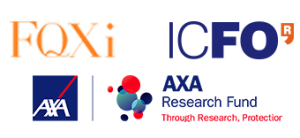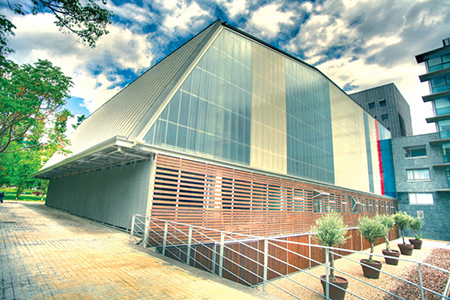About us
About FQXi
Mission
To catalyze, support, and disseminate research on questions at the foundations of physics and cosmology, particularly new frontiers and innovative ideas integral to a deep understanding of reality but unlikely to be supported by conventional funding sources.
Goals
FQXi has five goals:
- To expand the purview of scientific inquiry to include scientific disciplines fundamental to a deep understanding of reality, but which are currently largely unsupported by conventional grant sources
- To redress incrementalism in research programming by establishing or expanding new “islands” of understanding via flexible funding of high-risk, high-reward research in these areas
- To forge and maintain useful collaborations between researchers working on foundational questions in physics, cosmology, and related fields
- To provide the public with a deeper understanding of known and future discoveries in these areas, and their potential implications for our worldview
- To create a logistically, intellectually, and financially self-sustaining independent Institute to accomplish these goals during and beyond the initial four year program beginning in 2006, thereby pioneering a new model of philanthropically-funded scientific research
FQXi therefore aims to support research that is both foundational (with potentially significant and broad implications for our understanding of the deep or “ultimate” nature of reality) and unconventional (enabling research that, because of its speculative, non-mainstream, or high-risk nature, would otherwise go unperformed due to lack of funding).
About AXA Research Fund
Support scientific discoveries and their dissemination.
As an insurer, it is part of AXA’s corporate responsibility to be involved in building knowledge on risks in order to better prevent them and, if they do occur, to better protect people against their consequences.
This knowledge is first produced by AXA experts using field data and in-house analysis. Nevertheless, in an increasingly changing world, our societies cannot rely solely on the past to explain the future, nor can we merely adapt existing models incrementally.
The AXA Research Fund supports independent academic research to challenge historical consensus in areas associated with environmental, life and societal hazards to understand the current reality of such risks.
Today’s research will help better protect tomorrow.
Thanks to a robust academic selection process, the AXA Research Fund aims both at supporting top-tier researchers all over the world and promoting the dissemination of their discoveries in the public debate.
It provides researchers with the means and the freedom to complete their work successfully, so that they feel encouraged both to explore new avenues and to popularize their work for the benefit of society.
Help researchers to nurture public debate
Support by the AXA Research Fund goes beyond funding. AXA also provides its corporate networks and communication resources to help supported scientists go one step further in sharing their knowledge with a broader audience, thus empowering them to actively inform public debate on risks threatening our societies. In this perspective, popularization workshops and academic events are regularly organized.
The AXA Research Fund’s Books of Knowledge provide a readily accessible and concrete introduction to the work of supported researchers in order to ease their contact with risks experts, decision makers and the media.
This scientific philanthropy initiative is a major component of AXA’s commitment to better protect people against risks.
About ICFO
ICFO-The Institute of Photonic Sciences was created in 2002 by the government of Catalonia and the Technical University of Catalonia as a center of research excellence devoted to the science and technologies of light with a triple mission: to conduct frontier research, train the next generation of scientists, and provide knowledge and technology transfer. Today, it is one of the top research centres worldwide in its category as measured by the Mapping Scientific Excellence ranking.
Research at ICFO targets the forefront of science and technology based on light with programs directed at applications in Health, Renewable Energies, Information Technologies, Security and Industrial processes, among others. The institute hosts 300 professionals based in a dedicated building situated in the Mediterranean Technology Park in the metropolitan area of Barcelona.
Researchers at ICFO publish in the most prestigious journals and collaborate with a wide range of companies around the world. The institute runs a vigorous technology transfer program in which more than 30 national and international industries participate. It has also created 5 spin-off companies to date. The institute is generously supported by Cellex Foundation Barcelona, which supports several frontier research projects and programs focused on young talented researchers.

